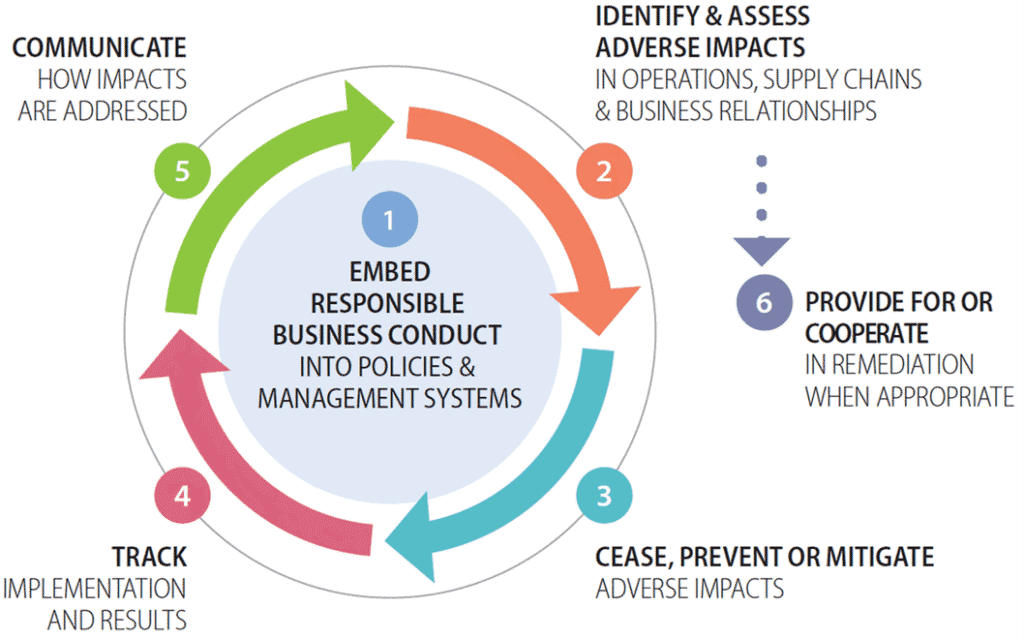The term “due diligence” is increasingly mentioned in the context of sustainable trade, human rights and international law. But what does it mean exactly? And what does it require of companies?
In this blog, we explain what it is, why it is becoming increasingly important, and how companies can meet their supply chain responsibility step by step.
What is due diligence?
Due diligence literally means ‘due diligence’. In the context of international business, it is the process by which companies investigate the risks that cause or sustain their operations – and then take action to prevent, reduce or remediate those risks.
It is not only about what happens within your own company, but also about what happens upstream in the chain: at suppliers, farmers, factories or raw material suppliers.
The six steps of the due diligence process
The due diligence process is usually broken down into six steps, as outlined in the OECD Guidelines:
- Draw up a policy: Formulate a clear policy in which you as a company indicate that you respect human rights and the environment.
- Identifying and assessing risks: Investigate where in your chain there are risks – think of child labour, deforestation, or lack of living wage.
- Take measures: Draw up improvement plans and work with suppliers to reduce or stop risks.
- Monitoring and evaluation: Follow up on whether the measures are having an effect and adjust them where necessary.
- Communication and reporting: Be open about the risks you encounter and the steps you take. This fosters trust and cooperation.
- Taking remedial measures: When damage has been caused, you actively work on recovery – for example through grievance mechanisms or compensation
The six steps mentioned above are based on the OECD Due Diligence Guidance for Responsible Business Conduct. This framework has become the international standard for due diligence in global supply chains. It provides a practical, structured approach for companies to identify, prevent, mitigate, and account for how they address adverse impacts in their operations and supply chains.
Importantly, the OECD model emphasizes that due diligence is not a one-time action, but an ongoing cycle. Companies are expected to regularly update their risk assessments and actions as circumstances change, making it a dynamic process rather than a static checklist. This approach aligns with both legal requirements (such as the EU CSDDD and national laws) and growing societal expectations around corporate responsibility.

What does this mean in practice?
For many companies, due diligence is a growth process. It does not mean that your chain has to be 100% problem-free right away, but it does mean that you actively research, make choices and take responsibility.
ImpactBuying supports companies in this process – from risk scans to stakeholder dialogues, and from data collection to impact strategies. Our tools and expertise help organizations to comply with legislation and achieve positive impact in their chain.
Conclusion
Due diligence is not a tick box for compliance, but a way to structurally contribute to fair, sustainable trade. It requires transparency, cooperation and the willingness to ask difficult questions. But it also delivers: stronger relationships with suppliers, more resilient chains, and products that really contribute to a better world.